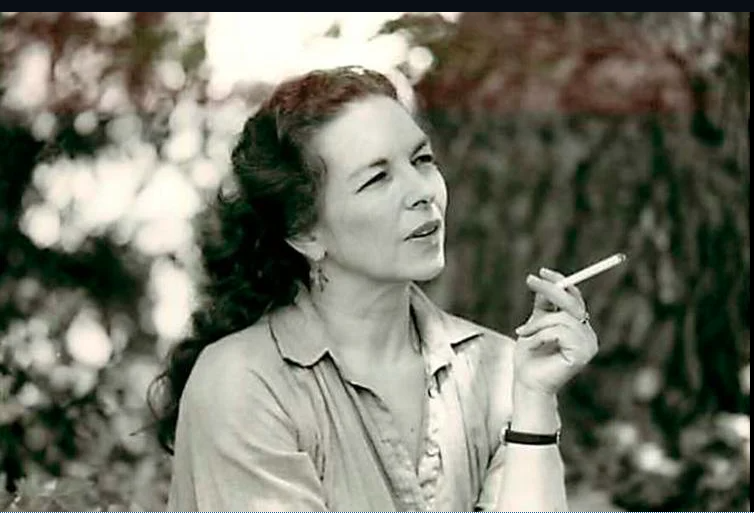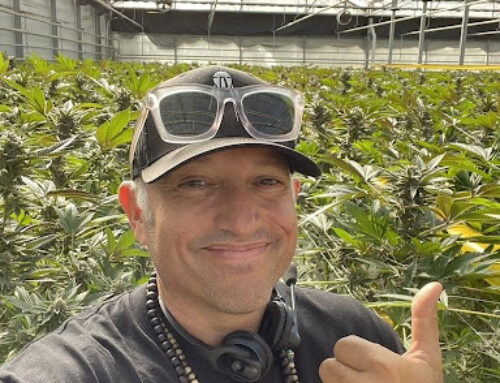Ann Shulgin, Pioneer of Psychedelics in Therapy, Dies Age 91
SAN FRANCISCO Ann Shulgin, who co-authored two influential books on the topic and, along with her late husband Alexander Shulgin, pioneered the use of psychedelic chemicals in psychotherapy, has passed away at the age of 91.
According to Wendy Tucker, Shulgin’s daughter, the condition known as chronic obstructive lung disease had made her ill. In the presence of her loved ones, she passed away on Saturday at “the farm,” the expansive home in the San Francisco Bay Area where she and her late chemist husband shared until his passing in 2014.
Shulgin worked alongside her husband, who in the 1970s uncovered the MDMA substance, better known as ecstasy, and promoted it as a potential mental health treatment. Her spouse had a thorough understanding of Jungian psychoanalysis. The pair experimented with the drugs on a small group of their friends and themselves.
In a 2014 interview with The Associated Press, Shulgin described their collaboration as “He was the science, and I was the psychologist.” He was brilliant.
Shulgin was raised abroad after being born in New Zealand to an American ambassador and a New Zealand mother. Her father retired, and the family moved to San Francisco. Shulgin, a skilled professional artist, spent her entire life creating art while also working as a medical transcriptionist.
For many years, students, professors, and others working with psychedelics gathered at the couple’s home in Lafayette, California, about 22 miles (35 kilometers) east of San Francisco, where Alexander Shulgin also maintained his lab.
Despite the fact that she had any psychotherapy training, “she was usually the one people talked to and you always felt like you could open up to her.” Tucker said that she identified as a lay therapist.
The couple co-wrote two books and kept detailed notes about their experiences and what they saw in others. Both PiHKAL: A Chemical Love Story and TiHKAL: The Continuation were released in print in 1991 and 1997, respectively.
Shulgin wrote in PiHKAL about her first encounter with psychedelics, which she had when she was in her 20s.
“I saw something forming in the air, slightly above the level of my head. I thought that it was perhaps a few feet from me, then I realized I couldn’t actually locate it in space at all. It was a moving spiral opening, up there in the cool air, and I knew it was a doorway to the other side of existence, that I could step through it if I wished to be finished with this particular life I was living, and that there was nothing threatening or menacing about it; in fact, it was completely friendly. I also knew that I had no intention of stepping through it because there was still a great deal I wanted to do in my life, and I intended to live long enough to get it all done. The lovely spiral door didn’t beckon; it was just matter-of-factly there,” she wrote.
Ann and Alexander Shulgin
The couple, who opposed ecstasy usage outside of treatment, self-published their first book about MDMA because publishers were scared to print it. They did this because they wanted to share their experiences and knowledge with the world, Tucker said.
They were the ones pushing for the inclusion of MDMA in all PTSD treatment for soldiers because they witnessed how well those who had experienced extreme trauma could recover. They were so bold to publish their work because it laid the path for everything that is happening right now, according to Tucker.
Several states in the United States have permitted researching the possible medicinal use of psychedelics, which are nonetheless prohibited under federal law. So-called magic mushrooms have also been made legal in a number of cities, and a flood of investment capital is entering the market.
The research, according to experts, shows promise for treating disorders ranging from PTSD to smoking addiction, but they warn that there are still some significant hazards, particularly for people with specific mental health conditions.

Ann Shulgin
“Due to the mindset and anxieties around psychedelics, we lost countless years of study capacity. But without Ann and Sasha, we wouldn’t be where we are now, she continued.
Four children, eight grandchildren, and five great-grandchildren remain to carry on Shulgin’s legacy. A memorial service is scheduled for later this year.





































